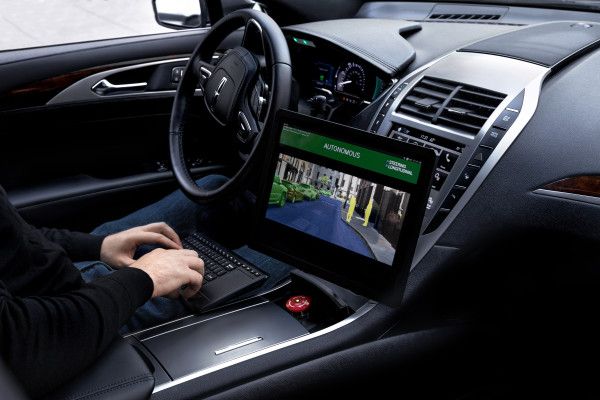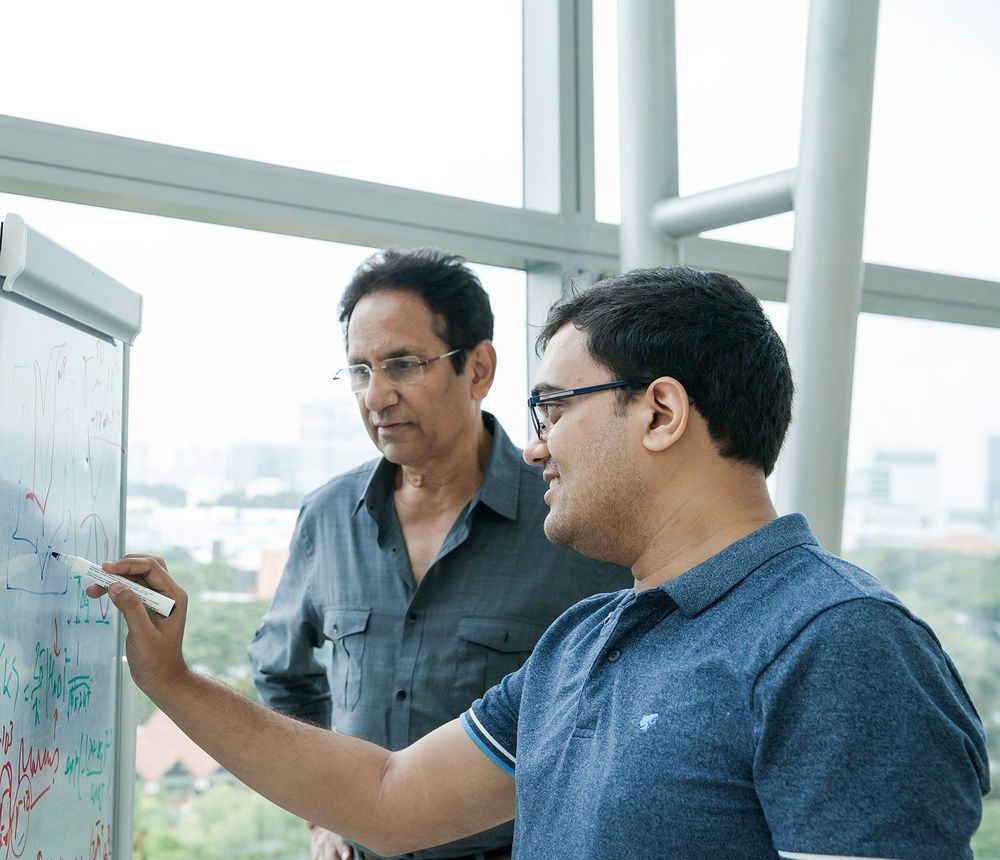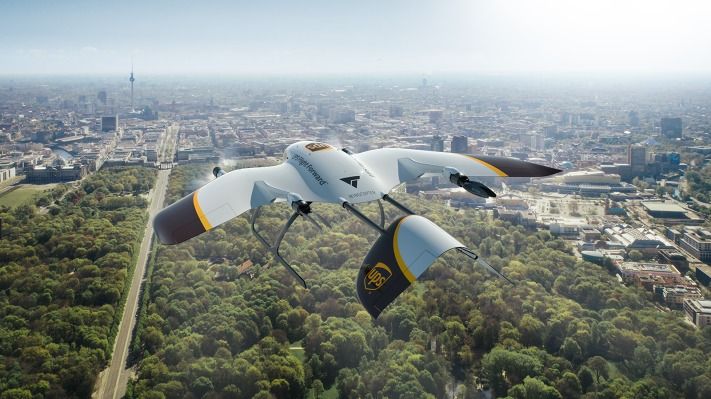I would love to see this on a long handle to grab the stuff I can’t get to. http://robohub.org/ lead me here after seeing Sabine Hauert do a talk on micro-swarms.


I would love to see this on a long handle to grab the stuff I can’t get to. http://robohub.org/ lead me here after seeing Sabine Hauert do a talk on micro-swarms.

Derek Haoyang Li, the founder of Squirrel AI Learning, is a serial entrepreneur who co-founded two publicly listed companies, and one of the companies has a market cap of $200 million. Squirrel AI Learning is the leading AI + education innovator and unicorn at the forefront of the K12 AI revolution. Within three years of its product release, Squirrel AI Learning has established more than 2,600+ learning centers in China and hosted the first series of human-vs-AI competitions in the Asia-Pacific region that proved the AI’s success. Squirrel AI Learning is recognized by Deloitte as one of the top 10 global AI enterprises with high growth. Squirrel AI Learning was also included in MIT Technology Review’s TR50 Smartest Companies in China list. Stanford Graduate School of Business has also published a case study on Squirrel AI Learning.

Four years ago, mathematician Vlad Voroninski saw an opportunity to remove some of the bottlenecks in the development of autonomous vehicle technology thanks to breakthroughs in deep learning.
Now, Helm.ai, the startup he co-founded in 2016 with Tudor Achim, is coming out of stealth with an announcement that it has raised $13 million in a seed round that includes investment from A.Capital Ventures, Amplo, Binnacle Partners, Sound Ventures, Fontinalis Partners and SV Angel. More than a dozen angel investors also participated, including Berggruen Holdings founder Nicolas Berggruen, Quora co-founders Charlie Cheever and Adam D’Angelo, professional NBA player Kevin Durant, Gen. David Petraeus, Matician co-founder and CEO Navneet Dalal, Quiet Capital managing partner Lee Linden and Robinhood co-founder Vladimir Tenev, among others.
Helm.ai will put the $13 million in seed funding toward advanced engineering and R&D and hiring more employees, as well as locking in and fulfilling deals with customers.
This super strong may bring us closer to lifelike robots.
This super strong artificial muscle may bring us closer to lifelike robots.

Researchers are using AI to search satellite images for unexploded bombs dropped in Cambodia during the Vietnam War.
The system uses object recognition algorithms that detect the unique features of bomb craters, including their shapes, colors, textures, and sizes. These algorithms then scan satellite images for signals of the craters.
The Ohio State University team first used the system to find craters in a village in the province of Prey Veng, a heavily bombed area around 30 kilometers from the Vietnam border.

As the use of intelligence proliferate in everyday products, there have been many attempts to make it easy to understand. A Google AI explainer…

Over the last decade, artificial intelligence (AI) and its applications such as machine learning have gained pace to revolutionize many industries. As the world gathers more data, the computing power of hardware systems needs to grow in tandem. Unfortunately, we are facing a future where we will not be able to generate enough energy to power our computational needs.
“We hear a lot of predictions about AI ushering in the fourth industrial revolution. It is important for us to understand that the computing platforms of today will not be able to sustain at-scale implementations of AI algorithms on massive datasets. It is clear that we will have to rethink our approaches to computation on all levels: materials, devices and architecture. We are proud to present an update on two fronts in this work: materials and devices. Fundamentally, the devices we are demonstrating are a million times more power efficient than what exists today,” shared Professor Thirumalai Venky Venkatesan, the lead Principal Investigator of this project who is from the National University of Singapore (NUS).
In a paper published in Nature Nanotechnology on 23 March 2020, the researchers from the NUS Nanoscience and Nanotechnology Initiative (NUSNNI) reported the invention of a nanoscale device based on a unique material platform that can achieve optimal digital in-memory computing while being extremely energy efficient. The invention is also highly reproducable and durable, unlike conventional organic electronic devices.

When you’re a software and hardware engineer sometimes you need a little challenge. Engineer Robert Lucian Chiriac’s latest Raspberry Pi creation can detect license plates and read the characters with fairly decent accuracy. This is an involved project that relies on machine learning to properly interpret images from the camera into discernible text.
The primary license plate reading function is constructed using three separate applications (there are more used throughout the project, but these three are critical). Chiriac used the YOLOv3 object detection algorithm to create a bounding box around each license plate it detects from the camera input. The image within the bounding box is sent to CRAFT, a text detecting application. Once the location for each character in the plate has been identified, the information is passed along to CRNN to predict the actual text.
Chiriac mounted the Raspberry Pi, GPS module, 4G module and Pi camera to his car’s rear-view mirror with a 3D-printed unit he designed. The Pi camera is even adjustable with a ball-joint swivel mount.

UPS is working with German startup Wingcopter to develop a new type of delivery drone, to be used for the logistics company’s growing commercial drone delivery efforts both in the U.S. and globally. Wingcopter has already designed an electric vertical takeoff and landing (eVTOL) aircraft that has a range of up to 75 miles and can achieve speeds as high as 150 miles per hour in conditions that include wind speeds of up to 45 miles per hour.
Wingcopter will be working closely with UPS’ Flight Forward subsidiary, the dedicated drone delivery unit that UPS developed last year in July to house its commercial drone delivery program. In October, Flight Forward received Federal Aviation Administration (FAA) approval to effectively operate a full-scale “drone airline” at scale for the purpose of package delivery.
Wingcopter has already demonstrated how its drones could operate in commercial settings, including during a demonstration with Merck earlier this year that saw its autonomous eVTOLs carry small packages between the drug company’s various office locations in Darmstadt in Germany. It also used its aircraft to deliver critical medical supplies and life-saving equipment to hard to reach areas, including through partnerships with UNICEF and other relief organizations.